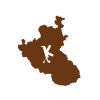Kodava Thakk Padikana
Kodava Koota in partnership with Kodava Clan launched an online teaching program ‘Kodava Thakk Padipo’.
The objective is to teach Kodava Thakk to anyone who may want to learn and or promote our language. We don’t intend to restrict anyone from learning, our objective is to be inclusive. This is one way for Kodava Koota to give back to our community and make sure Kodava Thakk is not a dying language. This will help our current as well as our future generation.
Contents
Objective
The objective is to teach ‘spoken’ Kodava Thakk to our children living anywhere in the world. Besides having online classes, we will build reusable teaching modules that can be leveraged by our future generation.
Team
KodavaKoota of North America
Kodavaclan
Dr Munjandira Punith
Biddanda Varun Devaiah
Boppanda ( Monnanda ) Smitha Kuttayya
Monnanda Anwita
Process
Students will need to sign up for classes via sending an email to kodavakoota.na@gmail.com Kodavakoot would maintain the list and email participants with the Zoom link before the lessons. After each lesson the video will be posted on YouTube channel for people to access the lessons if they were unable to attend the live classes.
Sessions
There have been 16 sessions planned so far. The lessons will be conducted every 2 weeks:
One
Module
Date
July 11, 2020 at 12 Noon EST/9:30 PM IST
Class video
: youtube.com/watch?v=JT7zy5tXKtg
Class Course Materials
Two
Module
- Numbers11-20
- Greetings
- (ennane uLLira? nanga chaayi’l uNd/naan chaayi’l uLL / en visheasha? / niida pedha entha?)
- This and that:
- adh/idh/entha/edh
- Household objects
- Fruits
- Yes/no
Date
July 25, 2020 at 12 Noon EST/9:30 PM IST
Class video
youtube.com/watch?v=5EO1kRMbbtE
Class Course Materials
Three
Module
- Where things are:
- illi, alli, elli?,
- elli uNd?
- ipp’k: nonpast conjugations:
- “I know/don’t know”
- (naa’k gothth uNd/ille)
Date
Aug 8th at 12 Noon EST/9:30 PM IST
Class video
youtube.com/watch?v=5EO1kRMbbtE
Class Course Materials
Four
Module
- Who are we?: dhaar, pronouns (naan, ããwu, etc.)
- Relationships
- Feelings:
- e.g. happy (kusi’l ipp’k), angry (chedi’l ipp’k), likes and dislikes (kusi aap’k, kusi ille).
- to have:
- ‘k uNd/ ‘Nda pakka uNd.
- e.g. naa’k kelsa uNd.
Date
Aug 22nd at 12 Noon EST/9:30 PM IST
Class video
www.youtube.com/watch?v=VKhpqlkxcdw
Class Course Materials
Five
Module
- Location: ‘l (e.g. porme’l, woLu’l, etc.).
- Ask questions such as “Where is the banana?”, “Who is in the house?”, “Where is thaatha?”
- Numbers: 6-12
- How many: echchak?:
- Ask questions such as: “How many fruits are in the house?”, “How many people are outside?”
Date
Sept 5Th at 12 Noon EST/9:30 PM IST
Class video
www.youtube.com/watch?v=AONRk22XP_s
Class Course Materials
Six
Module
- What are you doing?: entha maadiyan uLLira?
- introduce useful progressive particles such as (maadiyan, thindhan, kuDchiyan, kaLchiyan, and other daily activities)
- Directions: alli’nja illi’k:
- Here we could practice giving directions, e.g. post office’nja shale’k.
- “Elli’k pooyan uNd ava?” – “Aava mane’k pooyan uNd.”
Date
Sept 19Th at 12 Noon EST/9:30 PM IST
Class video
www.youtube.com/watch?v=9uljrA-r6CI
Class Course Materials
Seven
Module
- Wants and needs:
- (e.g. naa’k boaNdu, nii’k ondh baaNda)
- Weather:
- and, or, with: uu, allenge, kuude
- Basic body parts (kay, mande, kaal):
- perhaps include some expressions using body parts, such as kaal pudipo, naada kay’nja (from me), mande nambala
Eight
Module
- the verb maaduw’k (the most important regular verb):
- Conjugations in the nonpast tense:
- Expressions with maaduw’k (wariis maaduw’k, kelsa maaduw’k, dinner maaduw’k, suruu maaduw’k)
- General endings of the nonpast tense:
Nine
Module
- ipp’k in the future tense (ippi, ipp’le)
- combine this with the progressive particles to make the future progressive (maadiyan ippi, kaLchiyan ippa)
- Telling time
- (e.g. ikka echchak ganTe?)One activity that we could do as a class is make a sample weekly calendar (with times and days) and say what we are going to be doing at specific times and days (e.g. thingLaache’l, naa êdii divsa kelsa maadiyan ippii, cheniyaache naa woadhuwii)
- Another thing we could do is a weather forecast: i.e. naaLe maLe pojjan ippa, chowwache’l gaaLi ippa.
Ten
Module
- Whose is it?:
- e.g. dhaada?, naada, ããwuNda:
- possessive adjectives (e.g. naada ‘my’) and pronouns (naadadh, ‘mine’)
- Useful verbs:
- e.g. poap’k, bapp’k, kuLip’k, woadhuw’k, woaduw’k, êdp’k, êêw’k, budhdhuw’k, waruw’k, kaththuw’k, kattuw’k, aap’k
Eleven
Module
- Comparisons, Superlatives
- Useful adjectives (colors, opposites, )
- Food and taste:
- taste (kayp, rasa, puLi, upp)
- For this lesson we can practice describing food, first with the simple adjectives (e.g. kaachampuLi baari puLi uNd) and later with comparisons (kaachampuLi sakkare’k inyii puLi)
Twelve
Module
- Do this! Don’t do that!:
- Commands/Prohibitions (adh maaD, pooyith baari, naa’k kêêL, adh maadathe/maadathi):
Thirteen
Module
- Past tense of ipp’k
- (inje, injat, injiya, injiraa)
- Past progressive: e.g. naa maadiyan inje, ããwu poayan injat, etc.
Fourteen
Module
- Past tense endings, past tense verbs
Fifteen
Module
- What did she say? Reported Speech:
- Multiple verbs:
- e.g. pooyith bappi, nadndhan pooyan, althiit noat,
Sixteen
Module
- Advanced topics
- passive expressions with aap’k, poap’k,
- culture, traditions


Comments
Leave a comment!Login for Post Comment
Last posts